Envoyer à un ami : 
Epitope-focused vaccine design to protect against Zika and dengue virus simultaneously
M. Felix Rey
Institut Pasteur (Paris), directeur de l’unité de Virologie structurale Felix Rey is a structural biologist who graduated in theoretical physics in Argentina and later obtained his PhD in biochemistry at the South Paris University in France (in 1988). He then spent 7-years as post-doctoral fellow at Harvard university, until 1995, where he specialized in the structure of viruses. In 1995 he returned to France as Junior PI working at CNRS in Gif-sur-Yvette (Paris area), where in 1999 he became Director of the CNRS Laboratory of Structural and Molecular Virology. In 2004, he joined Institut Pasteur (downtown Paris) as Head of the Virology Department (which he directed until 2012), and in parallel he created the Structural Virology Unit, which he still directs today. His research focus has included the 3D structures of viral polymerases (like the hepatitis C virus RNA-dependent RNA polymerase) and the nucleoprotein template of replication for negative stranded RNA viruses such as the respiratory syncytial virus. But his main focus has been the study of viral envelope proteins, how they induce fusion, and how they are recognized by potently neutralizing antibodies. His studies in this area have very important implications in “reverse vaccinology”, opening the way for epitope-focused vaccine design for viruses such as dengue and Zika. Felix Rey is an EMBO member since 2005 and a member of the French Academy of Sciences since 2010. Among the honors and awards he obtained are the CNRS “Médaille d’Argent” in 2004, the Beijerink Virology Prize of the Dutch Royal Academy in 2013, and the Pasteur-Weizmann-Servier award in 2015
Durée :
Colloque interdisciplinaire - "Images"
Du au
Patio, Strasbourg
Université de Strasbourg
Les 1er et 2 juin 2017, l'Université de Strasbourg organise un colloque interdisciplinaire dédié au thème « Images ». Un événement scientifique et public destiné à favoriser l'émergence de projets de recherches aux confins des disciplines.
http://images.unistra.fr/#c119077

